 |
 |
Indiana University Pervasive Technology Institute News
June 2015
Current and archive issues: http://pti.iu.edu/newsletter/ |
Noteworthy |
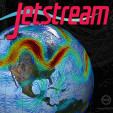 |
IU’s Jetstream: Targeting the long tail of science |
| |
Improving HPC access to the so-called long tail of science is an ongoing NSF priority. Several initiatives, funded in part by NSF, are underway and one – Jetstream – is the first NSF-funded HPC Cloud targeted at domain scientists and engineers who typically have limited access to HPC resources and limited expertise. In an HPC Wire article, IU Research Technologies Senior Manager David Hancock says, “This is the first cloud for science and engineering across all areas of NSF. If that sounds a little nuanced, that’s because it is.” Led by IU’s Pervasive Technology Institute (PTI), Jetstream will add cloud-based computation to the national cyberinfrastructure.
Read more |
 |
IU wins nearly $9 million to manage, improve international research networks |
| |
New National Science Foundation grants totaling $8.6 million mean Indiana University will manage and analyze the networks that power the NSF international research and education (R&E) collaborations. With a $3.6 million award the IU Global Research Network Operations Center (GlobalNOC) will manage the Network Operations Center for the NSF's International Research Network Connections-funded infrastructure projects, providing researchers with network connectivity for analyzing and sharing vast amounts of data with worldwide colleagues.
Read more about this grant award |
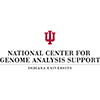 |
Genome Center expands reach |
| |
The National Center for Genome Analysis Support (NCGAS) announced new services and partnerships to support genome science and researchers studying the diversity of life, working to cure disease, and improve farming around the world.
- The Trinity RNA-Seq portal provides access to cancer genome analysis tools on a pipeline housed on IU’s Karst supercomputer.
- GenePattern software provides algorithms for analyzing genomics data
- A genome browser service allows investigators to visualize entire genomes with annotated data, including gene prediction and other structural data.
- Keithanne Mockaitis, Ph.D., of Dow AgroSciences and known worldwide for her work on plant genomics, is NCGAS’ first visiting scientist.
Says NCGAS Director Bill Barnett, “The NCGAS service model, first funded by the National Science Foundation, is proving to be a valuable and much-needed asset to the research community.” |
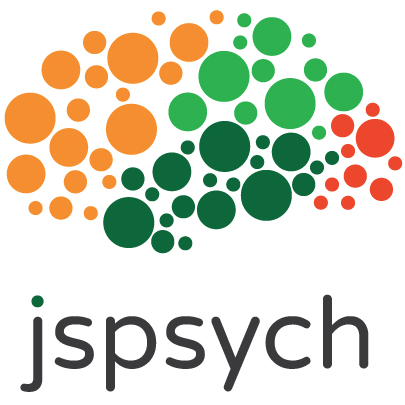 |
jsPsych: Open-source software for psych experiments over the Internet |
| |
Created by IU grad student Josh de Leeuw, jsPsych allows psychologists without significant programming skills to deliver tasks common to research on the mind through a Web browser. jsPsych, a free open-source software platform that employs a common Web technology to conduct psychology experiments over the Internet. A study in the journal Behavior Research Methods looked into whether delays in response time using online technology were barriers to conducting research online, examining differences between Matlab's Psychophysics Toolbox (popular popular software for psychological experiments) and jsPsych.
Read more about jsPsych |
 |
IU to investigate cues influencing women’s STEM success |
| |
Assistant professor of Psychological and Brain Sciences Mary C. Murphy will use an NSF $2.2 million grant to look into environmental signals that discourage some women from careers in science, technology, engineering, and math. Maureen Biggers, assistant dean for diversity and education in the IU School of Informatics and Computing and director of IU Center of Excellence for Women in Technology is on the advisory board. In collaboration with the IU Center for Innovative Teaching and Learning, the study will create instructional materials available at no cost for use in the classroom or workplace.
Read more about this research |
 |
Need more power? Rebuild with the XSEDE Compatible Basic Cluster |
| |
The Biggreen Dell cluster at Marshall University in Huntington, WV, has been rebuilt as an XSEDE-Compatible Basic Cluster (XCBC). As part of its Campus Bridging effort, the Extreme Science and Engineering Discovery Environment (XSEDE) distributes a custom Rocks roll designed to minimize the complexity of building XSEDE-compatible Linux clusters for use by the US open science community. The XSEDE Rocks roll provides the widely used, open-source, scientific, mathematical, and visualization packages needed to convert a "bare-bones" Rocks cluster into an XCBC, a high-performance parallel computing cluster that's compatible with XSEDE digital services.
Read more about how to take advantage of this XSEDE service on your own campus |
|
Conferences and Events |
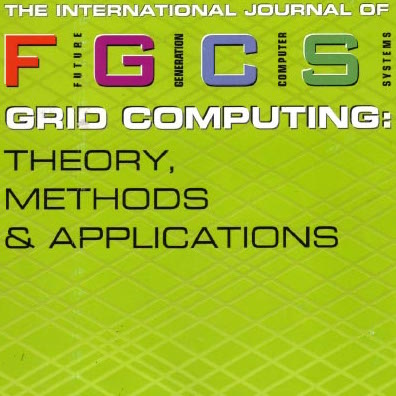 |
Call for Papers: Clusters, Clouds, and Grid on Life Sciences |
| |
This special issue of the journal Future Generation Computer Systems will cover grids, clouds, and big-data environments for faster processing of bioinformatic and medical data and for supporting large-scale collaborations. Some areas of interest include: modeling and simulating complex biological processes and exploiting distributed IT resources for life sciences, health care and research applications, including medical imaging, disease modeling, bioinformatics, public health informatics, drug discovery, and clinical trials.
Click here to read more |
 |
OR2015 (Open Repositories) |
| |
June 8-15, Indianapolis, Hyatt Regency
Topics related to digital repositories and their roles in supporting open scholarship, open science, online cultural heritage, and research data, including workshops, tutorials, papers, panels, and a developer track. Keynotes: Kaitlin Thaney (Mozilla Science Lab) and Anurag Acharya (Google Scholar)
Conference website |
 |
SCREAM-15: The Science of Cyberinfrastructure: Research, Experience, Applications and Models |
| |
June 16, 2015
Oregon Convention Center
Portland, Oregon
Focus: Creating a conceptual framework for the objective design and assessment of distributed cyberinfrastructure. Indiana University will present three of the talks on the workshop program. SCREAM is staged in conjunction with the ACM International Symposium on High-Performance Parallel and Distributed Computing (HPDC).
Conference website |
 |
International Symposium on High-Performance Parallel and Distributed Computing (HPDC) |
| |
June 16, 2015
Oregon Convention Center
Portland, Oregon
HPDC is the premier computer science conference for presenting the latest research on the design, implementation, evaluation, and use of parallel and distributed systems for high performance parallel and distributed systems used in science and industry.
Conference website |
 |
Campus Bridging Workshop: Reducing Obstacles on the Path to Big Answers at IEEE Cluster 2015 |
| |
Workshop: Campus Bridging: Reducing Obstacles on the Path to Big Answers at IEEE Cluster 2015
September 8, 2015, Chicago, IL
Participants will situate campus bridging in the context of cluster computing. We will discuss issues that campus bridging attempts to resolve and some projects the XSEDE Campus Bridging team have completed in aiming to mitigate those challenges.
Conference website - Workshop Info |
|
Learning Opportunities |
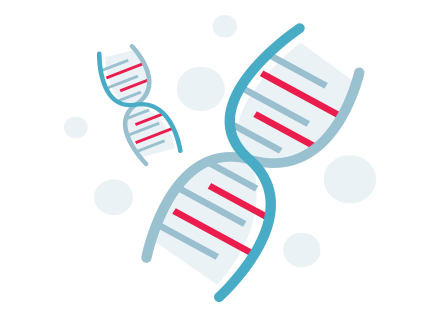 |
IU Bioinformatics Clinic 2015 |
| |
August 10-14
Lindley Hall B008
Indiana University Bloomington
Learn about cyberinfrastructure resources at Indiana University for computational genomics, like iPlant and Galaxy – an open, web-based platform for data-intensive biomedical research.
Click here for more info and for registration |
 |
Supercomputing for Everyone Series: Performance Tuning Summer School |
| |
August 17-21
Cyberinfrastructure Building (CIB), Multipurpose Room A
Indiana University Bloomington
Also available via: http://www.vscse.org/index.html
Learn how to analyze and improve the performance of scientific applications on IU’s high performance computing systems |
|
Administrivia |
 |
Retirement of PFTP/Kerberized FTP for Scholarly Data Archive |
| |
Research Technologies is announcing the retirement of the PFTP/Kerberized FTP service to access the Scholarly Data Archive. There are just four users that have used this client in the last 18 months, and therefore, due to low usage, we are retiring it on August 2, 2015.
Read more about the PFTP Retirement |
PTI events calendar
More conferences and events: https://pti.iu.edu/events.php
Systems Administration
Maintenance windows:
- Big Red ll: First Tuesday each month, 7am-7pm EDT
- DC2/DCWAN: First Tuesday each month, 7am-7pm EDT
- Mason: First Tuesday each month, 7am-7pm EDT
- Quarry: First Tuesday each month, 7am (EDT) for 24 hours
- RDC: First Tuesday each month, 8am-5pm EDT
- Scholarly Data Archive/Research File System: Sundays, 7-10am EDT
- Emergency downtimes: See IT Notices: http://itnotices.iu.edu
How to contact us and get help
Do you have questions about IU's cyberinfrastructure or need help? Try these resources:
More ways to get PTI and UITS-RT news
Web: http://itnews.iu.edu
Facebook http://facebook.com/iu.uits
Twitter http://twitter.com/insideuits
YouTube http://www.youtube.com/user/IUPTI
This is an official publication of Indiana University and is produced by University Information Technology Services, Indiana University.
Copyright 2015, The Trustees of Indiana University. Please credit UITS when referring to or using information in this publication. |
UITS Research Technologies is a cyberinfrastructure and service center affiliated with the Indiana University Pervasive Technology Institute.
pti.iu.edu
|
|
|
